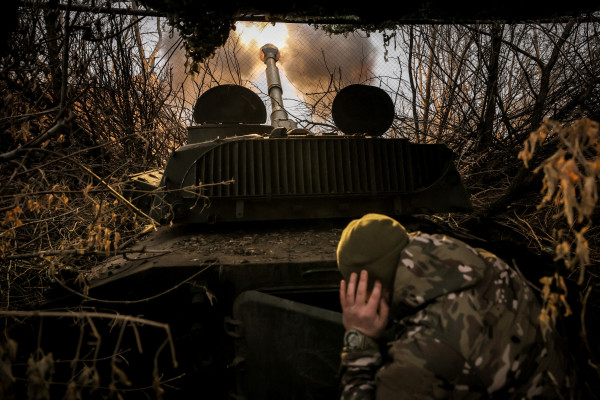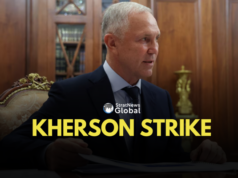On the last day of January, a woman took her son to see paediatrician Nadezhda Buyanova at Polyclinic No. 140 in northwest Moscow. The boy, aged seven, had a problem with one of his eyes.
The conversation that the boy’s mother alleged took place during an 18-minute encounter at the clinic would change both women’s lives and land the 68-year-old doctor in prison.
The case hinged on a denunciation – part of a rising trend of Russians informing on fellow citizens for their views on the war in Ukraine and other alleged political crimes. Critics say
the wave of denunciations is helping President Vladimir Putin’s government crack down on dissent.
In a video recorded as she was walking away from the clinic, the mother, Anastasia Akinshina, said she had told the doctor the boy was traumatised because his father was killed fighting for Russia in the war in Ukraine.
“Do you know what she told me? ‘Well, my dear, what do you expect? Your husband was a legitimate target of Ukraine,'” Akinshina said, mimicking the doctor’s voice and intonation.
Fighting back tears, Akinshina said she had raised the incident with the hospital administration and suspected they planned to hush it up.
“So the question is: where can I complain about this bitch now, so that she’ll be kicked out of the fucking country or sent to the devil in jail?” she said in the video, which went viral on social media and thrust her into a high-profile criminal trial as the key prosecution witness.
At the trial, Buyanova denied making the comment. But despite a lack of further adult witnesses, the denunciation was sufficient to destroy her 40-year medical career and her life.
The doctor, who had been in pre-trial detention since April, appeared before a Moscow court on Tuesday, her grey hair closely cropped. She was found guilty under a wartime censorship law of “publicly spreading deliberately false information” about the armed forces and sentenced to five-and-a-half years in a penal colony.
Buyanova was born in Ukraine but is a citizen of Russia, where she has lived and worked for three decades. Her lawyer Oscar Cherdzhiyev told Reuters the defence believed Akinshina acted out of malice because of the doctor’s Ukrainian origins.
Akinshina did not respond to written questions for this story, or answer her phone.
At the trial, she stated: “We are Russian. Buyanova hates Russians. She feels hostility towards me, that’s what I think,” according to a transcript by independent Russian outlet
Mediazona.
Two hospital staff who saw Akinshina after the consultation with Buyanova described her in evidence as being distraught.
The prosecution’s case was based almost entirely on Akinshina’s account, along with a transcript read out in the trial of an interview with the child, conducted by an officer of
the FSB security service. At first, Akinshina said the boy was not in the room when the comments were made, but later changed her story, telling the court she originally spoke in a state of shock.
The judge rejected the defence’s request to put its own questions to the child.
Russian rights group OVD-Info has recorded 21 criminal prosecutions in politically-motivated cases based on denunciations since the launch of Russia’s full-scale invasion
of Ukraine in 2022, Eva Levenberg, a lawyer with the group, told Reuters.
Levenberg, who lives in Germany, said OVD-Info knew of a further 175 people who had faced lower-level administrative charges for “discrediting” the Russian army as a result of
people informing on them in the same period, and 79 of these had been fined.
Reuters was unable to independently confirm the numbers Levenberg provided.
With Reuters inputs
Thirty eight years in journalism, widely travelled, history buff with a preference for Old Monk Rum. Current interest/focus spans China, Technology and Trade. Recent reads: Steven Colls Directorate S and Alexander Frater's Chasing the Monsoon. Netflix/Prime video junkie. Loves animal videos on Facebook. Reluctant tweeter.





